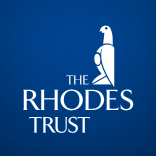 Recently, the Rhodes Trust announced the 32 American winners of Rhodes Scholarships for graduate study at Oxford University in England. Being named a Rhodes Scholar is considered among the highest honors that can be won by a U.S. college student.
Recently, the Rhodes Trust announced the 32 American winners of Rhodes Scholarships for graduate study at Oxford University in England. Being named a Rhodes Scholar is considered among the highest honors that can be won by a U.S. college student.
The scholarships were created in 1902 by the will of Cecil Rhodes, an industrialist who made a vast fortune in colonial Africa. According to the will of Rhodes, applicants must have “high academic achievement, integrity of character, a spirit of unselfishness, respect for others, potential for leadership, and physical vigor.”
This year, more than 2,500 students applied to be Rhodes Scholars. A total of 880 college students were endorsed by 281 colleges or universities for consideration for a Rhodes Scholarship. Some 221 applicants from 82 colleges and universities were named finalists. Then, two Rhodes Scholars were selected from each of 16 districts across the United States. Students may apply from either the district where they reside or the district where they attend college. The 32 American Rhodes Scholars will join students from 23 other jurisdictions around the world as Rhodes Scholars. The Rhodes Trust pays all tuition and fees for scholarship winners to study at Oxford. A stipend for living and travel expenses is also provided.
In 1907 Alain LeRoy Locke, later a major philosopher and literary figure of the Harlem Renaissance, was selected as a Rhodes Scholar to study at Oxford University. It is generally believed that at the time of the award the Rhodes committee did not know that Locke was Black until after he had been chosen. It would be more than 50 years later, in 1962, until another African American would be named a Rhodes Scholar. Other African Americans who have won Rhodes Scholarships include Randall Kennedy of Harvard Law School, Kurt Schmoke, former mayor of Baltimore, and Franklin D. Raines, former director of the Office of Management and Budget and former CEO of Fannie Mae. In 1978 Karen Stevenson of the University of North Carolina at Chapel Hill was the first African-American woman selected as a Rhodes Scholar.
A year ago, 10 African-Americans were among the 32 winners of Rhodes Scholarships for Americans. This was the most ever elected in a single U.S. Rhodes class. This year, there are three African Americans among the 32 Rhodes Scholars. This is a sharp reduction from a year ago. Yet, Blacks still make up 9.3 percent of all Rhodes Scholars selected this year in the United States.
Here are brief biographies of the three new African American Rhodes Scholars.
 Austin T. Hughes from San Antonio, Texas, is a senior at the University of Iowa. He is triple majoring in creative writing, theatre arts, and Japanese language and literature. He is a cellist and a cross-country runner at the university. Hughes served as co-president of The English Society at the University of Iowa. In that role, he showcased student literature to the campus community and beyond. He has won numerous awards for his poetry and creative writing. At Oxford, Hughes will pursue a master’s degree in Japanese studies.
Austin T. Hughes from San Antonio, Texas, is a senior at the University of Iowa. He is triple majoring in creative writing, theatre arts, and Japanese language and literature. He is a cellist and a cross-country runner at the university. Hughes served as co-president of The English Society at the University of Iowa. In that role, he showcased student literature to the campus community and beyond. He has won numerous awards for his poetry and creative writing. At Oxford, Hughes will pursue a master’s degree in Japanese studies.
 Anea B. Moore is a native of Philadelphia, Pennsylvania. She is a senior at the University of Pennsylvania majoring in law and minoring in Africana studies. Earlier, this year Moore was named a Truman Scholar. Her sociology research has focused on issues related to gentrification, race, class, and family engagement and well-being. As a Rhodes Scholar, Moore plans to study for master’s degrees in evidence-based social intervention and in comparative international education.
Anea B. Moore is a native of Philadelphia, Pennsylvania. She is a senior at the University of Pennsylvania majoring in law and minoring in Africana studies. Earlier, this year Moore was named a Truman Scholar. Her sociology research has focused on issues related to gentrification, race, class, and family engagement and well-being. As a Rhodes Scholar, Moore plans to study for master’s degrees in evidence-based social intervention and in comparative international education.
 Lia Petrose was born and raised in Ethiopia but then lived in Laurel, Maryland. She is a graduate of the University of Pittsburgh, where she majored in neuroscience and economics with a minor in chemistry. She has conducted research in Malawi concerning the cost-effectiveness of health information management systems. Since graduating from college, Petrose has worked as a research assistant in economics at the Massachusetts Institute of Technology. In England, Petrose plans to study for degrees in computer science and philosophy.
Lia Petrose was born and raised in Ethiopia but then lived in Laurel, Maryland. She is a graduate of the University of Pittsburgh, where she majored in neuroscience and economics with a minor in chemistry. She has conducted research in Malawi concerning the cost-effectiveness of health information management systems. Since graduating from college, Petrose has worked as a research assistant in economics at the Massachusetts Institute of Technology. In England, Petrose plans to study for degrees in computer science and philosophy.


In my new book, GOING TO COLLEGE IN THE SIXTIES, published in November 2018 by Johns Hopkins University Press, my chapter 6 “College Sports: Big Games and Big Problems” includes explicit coverage of the biographies of John Edgar Wideman (U of Pennsylvania ’62) and Stanley Sanders (Whittier College ’62) who I believe were the first African-Americans since Alain Locke to be named as Rhodes Scholars. They are incredible scholar-athletes who excelled at Oxford University and then upon return to the USA in their advanced studies and professional contributions.
Doing a paper on blacks as Rhodes Scholars I would love to interview one of them.